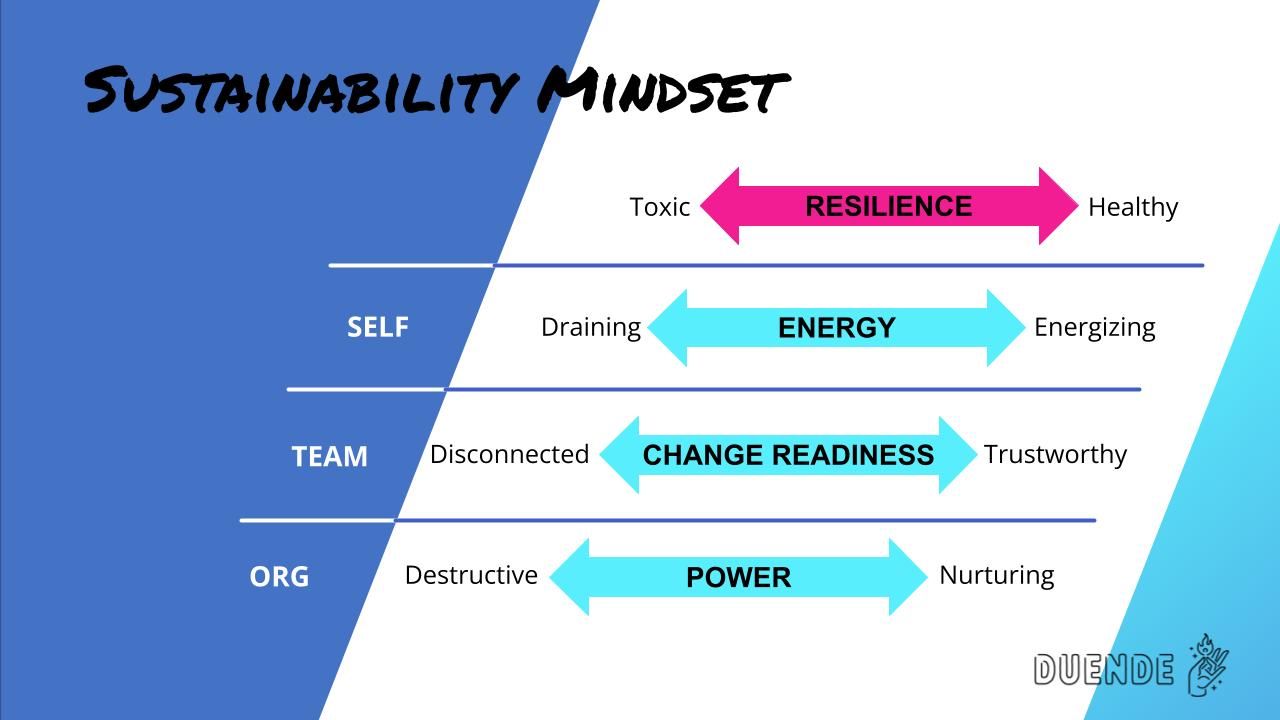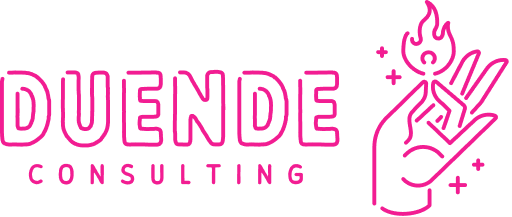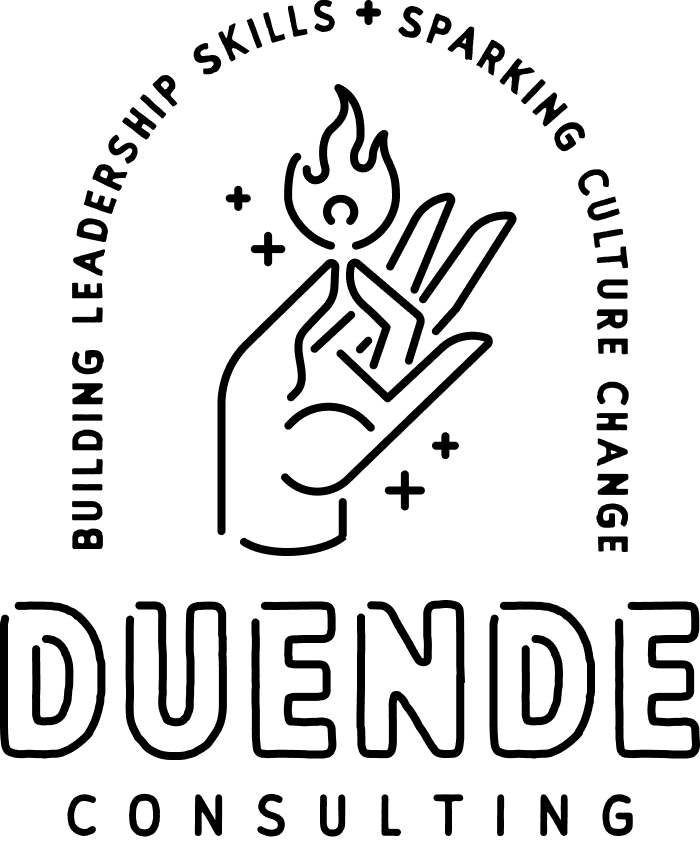The morning alarm rings and I'm a snoozer on good days. When work and life's pressures build up and up, that's a different kind of snooze. That's a 'drag yourself to crack open the laptop and just try to jumpstart another workday' morning. Some days, the juice simply isn't there no matter how much coffee I put down. And after a while, getting stuck in this pattern leads to burnout ruts that are tough to bounce out of.
Burnout is a serious and all too common health problem that 76% of people experience at least sometimes. One that the World Health Organization designated an "occupational phenomenon" of chronic workplace stress that isn't being adequately managed. And in this historic moment when work is being fundamentally reimagined across industries, these unsustainable health costs beg the question: what are healthier parameters for our work-lives?
In a spirit of helpfulness and necessity, businesses have touted resilience programs to employees that have yielded mixed results. An underlying problem with these programs is a misunderstanding of wellbeing, as if a person's resilience is entirely up to them individually. However our house plants can attest....given the right water, light, nutrients – they'll delight! But in the absence of care, their health will wane. Similarly, wellbeing and resilience rely on holistic factors.
Burnout is a serious and all too common health problem that 76% of people experience at least sometimes. One that the World Health Organization designated an "occupational phenomenon" of chronic workplace stress that isn't being adequately managed. And in this historic moment when work is being fundamentally reimagined across industries, these unsustainable health costs beg the question: what are healthier parameters for our work-lives?
In a spirit of helpfulness and necessity, businesses have touted resilience programs to employees that have yielded mixed results. An underlying problem with these programs is a misunderstanding of wellbeing, as if a person's resilience is entirely up to them individually. However our house plants can attest....given the right water, light, nutrients – they'll delight! But in the absence of care, their health will wane. Similarly, wellbeing and resilience rely on holistic factors.
The meme speaks truth! We can't self-actualize in survival mode.
Building Resilience
- Unfair treatment at work
- Unmanageable workload
- Unclear communication from managers
- Lack of manager support
- Unreasonable time pressure

Nourishing Your Energy
Energizing Your Workdays
Observe what drains or energizes you
Our emotions are powerful data on what is and isn't working for us. Use that data to your advantage. Here's an exercise that can raise self-awareness around how you sustain your energy and keep yourself focused on reaching goals.
Throughout the course of the day, pay attention to how environmental factors and behavioral dynamics are affecting you. For example, you may be stationary for too long, emotionally and cognitively dragging, and physically sliding off your seat. Or maybe you just finished a meeting that has you feeling annoyed or disappointed. You can take those feelings as cues to move, get outside, or have a snack to reset your energy. Whether you're facing a slump or digging into something with focus, try to notice (in the moment) which experiences drain or boost your energy. Apps like Mood Meter are great for registering these moments and getting immediate strategies to optimize your energy.
After a week of observing your energy flows, reflect on which types of activities, tasks, and dynamics drained or boosted your energy. Start by looking back on your schedule and tallying your drain/boost experiences. Then, create a note with two columns. Write what drained you in one column and what boosted you in a second column.
In doing so, you're creating categories that you can further observe and segment. As you do, you might notice trends across some of the experiences in a column. A trend might be that you feel most productive when you're collaborating with other people and that you have strong interpersonal skills. Knowledge like this (about your professional skills and strengths) is leverage around how you're best equipped to keep yourself on track and make the most of your day!
Throughout the course of the day, pay attention to how environmental factors and behavioral dynamics are affecting you. For example, you may be stationary for too long, emotionally and cognitively dragging, and physically sliding off your seat. Or maybe you just finished a meeting that has you feeling annoyed or disappointed. You can take those feelings as cues to move, get outside, or have a snack to reset your energy. Whether you're facing a slump or digging into something with focus, try to notice (in the moment) which experiences drain or boost your energy. Apps like Mood Meter are great for registering these moments and getting immediate strategies to optimize your energy.
After a week of observing your energy flows, reflect on which types of activities, tasks, and dynamics drained or boosted your energy. Start by looking back on your schedule and tallying your drain/boost experiences. Then, create a note with two columns. Write what drained you in one column and what boosted you in a second column.
In doing so, you're creating categories that you can further observe and segment. As you do, you might notice trends across some of the experiences in a column. A trend might be that you feel most productive when you're collaborating with other people and that you have strong interpersonal skills. Knowledge like this (about your professional skills and strengths) is leverage around how you're best equipped to keep yourself on track and make the most of your day!
Play to your strengths
Professional skills are a lot like muscles. As you exercise your arms by climbing across monkey bars, you make them stronger, nimbler, faster. Your skills also need exercise on the jungle gym of work to become strengths.
When we know how to do something well or are excited about learning how-to, then we're ready to problem solve. So when we're feeling stuck, playing to our current skills and future strengths can boost our energy and chances of success. Drawing on a personal example, I miss facilitating learning experiences in person. Yet I need to adapt to the virtual-first work environment by picking up new skills for facilitating through video. I could try animating or some other video production that I'm unsure and uncomfortable about. I could also play to my strengths by adapting my conversational facilitation style to video recordings. Sure that means there will be a lot of embarrassing footage of me learning how to be authentic through a new medium. Still, that'll be faster with a higher certainty for success than a harder pivot away from what I'm already great at doing.
When you're approaching something new or that you're unsure of, get yourself unstuck by leveraging your skills and strengths. Remember how you've achieved success before. Then, imagine how you can exercise your abilities on the jungle gym of work to get through the obstacle courses you face. You may have a sense of your strengths from observing how you sustain and enhance your energy. If you'd like a more scientific understanding of how you can perform at your best, use a reputable psychometric assessment like the EQ-i 2.0 (available through Duende Coaching to Develop Emotional Intelligence). That'll give you personalized insights and strategies for professional development through the lens of emotional intelligence.
When we know how to do something well or are excited about learning how-to, then we're ready to problem solve. So when we're feeling stuck, playing to our current skills and future strengths can boost our energy and chances of success. Drawing on a personal example, I miss facilitating learning experiences in person. Yet I need to adapt to the virtual-first work environment by picking up new skills for facilitating through video. I could try animating or some other video production that I'm unsure and uncomfortable about. I could also play to my strengths by adapting my conversational facilitation style to video recordings. Sure that means there will be a lot of embarrassing footage of me learning how to be authentic through a new medium. Still, that'll be faster with a higher certainty for success than a harder pivot away from what I'm already great at doing.
When you're approaching something new or that you're unsure of, get yourself unstuck by leveraging your skills and strengths. Remember how you've achieved success before. Then, imagine how you can exercise your abilities on the jungle gym of work to get through the obstacle courses you face. You may have a sense of your strengths from observing how you sustain and enhance your energy. If you'd like a more scientific understanding of how you can perform at your best, use a reputable psychometric assessment like the EQ-i 2.0 (available through Duende Coaching to Develop Emotional Intelligence). That'll give you personalized insights and strategies for professional development through the lens of emotional intelligence.
Experiment with new ways-of-working
It's going to take a few low risk experiments to find your groove for sustaining your energy. When in doubt about where to start, think about your physical, social, community, career, and financial wells of wellbeing. If one of those wells is feeling dry, experiment with getting your energy to flow through it again.
These experiments could be different ways of managing your calendar so that you do tasks that boost your energy when you need it. For example, you may be a social person who'll get a jolt from meeting with people. And so you could try counteracting the infamous 3 pm slump by scheduling meetings during that time. Similarly, you might like to exercise as a jumpstart to your day or use exercise to close off the workday.
Other experiments could be learning something new or a different way of doing something familiar. This can be especially relevant when starting to work in a new job or new organizational culture. You may know what to do and how to do it. Still, figuring how to be effective in a new capacity can be exacerbating.
During your experiments and any time, be patient with yourself. There will be growing pains. Other people have been through similar situations and can provide helpful insights about how they navigate change. And don't be afraid to discuss strengths and learning gaps. That's how you'll better understand your colleagues, particularly how you can complement and learn from each other's strengths.
These experiments could be different ways of managing your calendar so that you do tasks that boost your energy when you need it. For example, you may be a social person who'll get a jolt from meeting with people. And so you could try counteracting the infamous 3 pm slump by scheduling meetings during that time. Similarly, you might like to exercise as a jumpstart to your day or use exercise to close off the workday.
Other experiments could be learning something new or a different way of doing something familiar. This can be especially relevant when starting to work in a new job or new organizational culture. You may know what to do and how to do it. Still, figuring how to be effective in a new capacity can be exacerbating.
During your experiments and any time, be patient with yourself. There will be growing pains. Other people have been through similar situations and can provide helpful insights about how they navigate change. And don't be afraid to discuss strengths and learning gaps. That's how you'll better understand your colleagues, particularly how you can complement and learn from each other's strengths.



